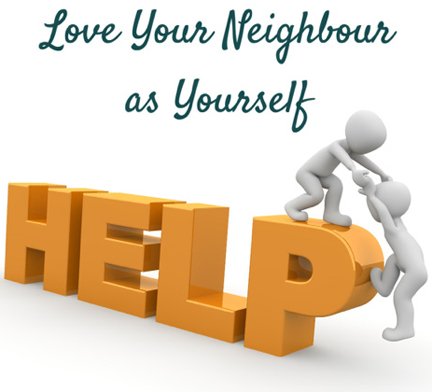As you might imagine, having preached an Easter sermon every year (except one) since 1987, I approach this day wondering what I could possibly say about the resurrection of Jesus that I haven’t said before. Is there more to the story than I have seen in years past? Is there something about the account in Luke that is different from the accounts in the other gospels? What can I say that will sound like new good news?
This year, as I was reading the story in Luke, one phrase seemed to jump off the page at me. When the women (Mary Magdalene, Joanna, Mary the mother of James and others) went to the tomb on that first Easter morning, they were surprised to see that the stone blocking the entrance had already been rolled to one side. And when they went into the tomb, they were even more startled to discover that the body of Jesus was not there. As they stood there, wondering what might have happened, probably afraid that someone had come and stolen the body of Jesus, two men – two angels – appeared before them. They said to the women, “Why do you look for the living among the dead? He is not here; he has risen!” He is not here. Jesus is not in the tomb. And the question that has to be spoken is, “If he is not here, then where is he?”
Good question. Where is Jesus? Jesus is risen! Jesus is alive! In just a little while, Jesus will appear to Mary Magdalene in the garden and to the disciples in the upper room. He will appear to the couple walking on the road to Emmaus. According to Paul’s account in 1 Corinthians 15:5-8, “he appeared to Peter, and then to the Twelve. After that, he appeared to more than five hundred of the brothers at the same time, most of whom are still living, though some have fallen asleep. Then he appeared to James, then to all the apostles, and last of all he appeared to me also …” The Gospel accounts and this passage written by Paul provide for us the information that Jesus was seen after he had been raised from the dead. The resurrection has eyewitness accounts, not of the raising itself, but of the risen Lord in the hours and days after he was raised. Jesus was seen over a period of time before he ascended into heaven.
Jesus was not in the tomb; he was alive and free. This fact is so central to the Christian faith that I am not sure there would be Christianity without it. Jesus had told his followers before his death, on more than one occasion, that he would be put to death and then would be raised from the dead on the third day. But they didn’t understand. The disciples were all hiding in the upper room, afraid for their own lives. And they weren’t looking for him on Easter morning. In fact, it would seem that Pontius Pilate was the only one who took Jesus’s words seriously. He knew that Jesus claimed that he would rise from the dead, and so he posted a guard at the tomb to be sure that none of his followers would take his body away and then claim that he had been raised from the dead.
There is a play called The Trial of Jesus, written by John Masefield. In the play, there is a Roman centurion named Longinus who was the officer in charge of the execution of Jesus. He was designated to go to Pilate after Jesus had been crucified to give him a report of his death. After his official report, Pilate’s wife, Procula, called Longinus to come and tell her how Jesus had died. After he finished his account, Procula asked him, “Do you think he is dead?” Longinus answered her, “No, lady, I don’t.” She then asked, “Then where is he?” And Longinus replied, “Let loose in the world, lady, where neither Roman nor Jew can stop his truth.” Jesus has been let loose in the world, and no one has been able to stop the truth about him from being told. There are millions – billions – of Christians around the world who are celebrating Easter this morning, proclaiming the ultimate truth about Jesus, that he has been raised from the dead.
Where might we find Jesus in our world today? When he walked this earth in 1st-century Palestine, Jesus could be found among the poor, the outcast, the vulnerable, and the broken. He was accused of eating with sinners, and by the definition of the Pharisees, that was the truth. He associated with women, lepers, tax collectors, Roman soldiers, Gentiles, and, yes, even Pharisees. Jesus can be found with the poor and outcast in our world today. Jesus is there with the people who are starving to death in Africa, in part because of America’s ceasing to fund aid to their countries. Jesus is with the poor in our own country, who cannot make ends meet and are facing incredible hardship with rising prices. Jesus is with women who, in some states, no longer have the final say on what happens to their own bodies. Jesus is with those who are in fear of being picked up off the street or in their own homes or out of their cars or even in their churches and deported, despite having legal status in this country. And Jesus is with those whose practice of their faith focuses more on state-endorsed religion and less on being servants and neighbors to everyone.
Jesus could also be found speaking truth to power, directing his comments and critiques to Roman and Jewish politicians and to the Jewish religious establishment. When he saw hypocrisy, he called out those who had gotten their faith wrong. When he saw oppression and injustice, he called out those who acted with an iron fist to keep down those who were considered less than by the elite. When Jesus saw unethical behavior taking place right in the very courts of the Temple, he went in with a whip and drove out those who were buying and selling goods and exchanging money for Temple coins at an exorbitant rate. As Dorothy Sayers wrote, “The people who hanged Christ never accused him of being a bore; on the contrary, they thought Him too dynamic to be safe … they objected to him as a dangerous firebrand. True, he was tender to the unfortunate, patient with honest inquirers, and humble before heaven; but he insulted respectable clergymen by calling them hypocrites; he referred to King Herod as ‘that fox’; he went to parties in disreputable company …; he insulted indignant tradesmen and threw them and their belongings out of the Temple, … he showed no proper deference for wealth or social position; … and officialdom felt that the established order of things would be more secure without him. So they did away with God in the name of peace and quietness.”
Where can Jesus be found today? Perhaps the most important thing I can say is that Jesus can be found in our lives and in our hearts. Jesus is present with us, no matter what our circumstances. Bishop Lajos Ordass of the Lutheran Church in Hungary addressed a gathering of the Lutheran World Federation in Minneapolis back in 1957. As bishop, he had protested the Communist regime’s confiscation of church schools and was in prison for twenty months. Later he was under arrest again, this time for six years. He said, “They placed me in solitary confinement. It was a tiny cell, perhaps six feet by eight feet, with no windows, and soundproofed. They hoped to break down my resistance by isolating me from all sensory perceptions. They thought I was alone. They were wrong. The risen Christ was present in that room, and in communion with him I was able to prevail.” What a powerful testimony!
Also, we need to remember that we are the body of Christ in the world. It is up to us to carry on the work that Jesus started. He promised that the kingdom of heaven was near, and he did what he could to bring the ways of heaven to earth. And now that task falls to us. We pray every Sunday, “thy kingdom come; thy will be done on earth as it is in heaven.” Those aren’t just words; they are a revolutionary call to action. Jesus spent much of his time on this earth telling his followers what the kingdom of God looked like. It was a place where everyone was welcome, where people were told that God loved them and that Jesus had died for them, it was a place where just a little bit of faith could cause a mountain to move, it was a place where the last would be first and the first would be last, it was a place where the greatest among his followers would be the least and a servant to all. We should be creating that kind of existence around us as much as we possibly can.
And we are to proclaim the good news that Jesus Christ came into this world to show us more about God and more about how we are to live; that Jesus taught and preached and healed and worked miracles during his three-year ministry; that Jesus so disturbed the political and religious leaders that they conspired to have him arrested and put to death; and that Jesus was raised from the dead on the third day. We are to keep on telling this truth as long as there are those who have not heard it. Donald Harvey Tippet wrote, “If Easter means anything to modern man, it means that eternal truth is eternal. You may nail it to a tree, wrap it up in grave clothes, and seal it in a tomb. But truth crushed to earth shall rise again. Truth does not perish. It cannot be destroyed. It may be distorted. It has been silenced temporarily. It has been compelled to carry its cross to Calvary’s brow … but with an inevitable certainty after every [Good] Friday dawns truth’s Easter morn.”
Look into the tomb. It is empty. Jesus is not here. He is risen! And through us, and in us, and in spite of us, Jesus lives on and his work continues.




























